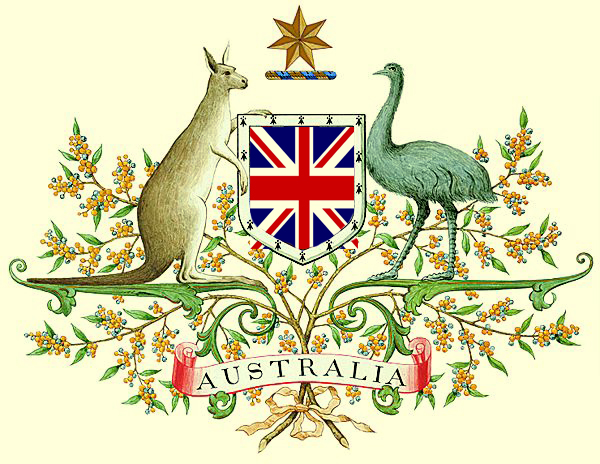Search
Recent comments
- economy 101....
41 min 3 sec ago - peace....
1 hour 29 min ago - making sense....
4 hours 7 min ago - balls....
4 hours 11 min ago - university semites....
4 hours 59 min ago - by the balls....
5 hours 13 min ago - furphy....
10 hours 28 min ago - nothing new....
11 hours 32 sec ago - blood brothers....
11 hours 58 min ago - germanic merde....
12 hours 2 min ago
Democracy Links
Member's Off-site Blogs
is the australian constitution democratic?...

1. The Constitution describes Australia’s status as that of a British dependency ― a situation that, for all practical purposes, ended in 1945 after WWII. The position of the Governor-General is that of Her Majesty’s powerful servant. It is essentially a colonial relationship.
2. The Constitution made provision for a federation, a structure of state, which made good sense in 1900, but that now a costly hindrance to effective government for a mere 23 million people. Local Government is not even mentioned in this Constitution. It has no formal relationship to the national government.
3. The Constitution makes no mention of political parties ― the reality of the political system. As a result of the single-district electoral system, which exists separate from the Constitution, an inefficient two-party system has developed.
4. Parliamentary democracy, often praised in Australia as a positive Constitutional feature, is in fact NOT protected by the Constitution.
5. The Constitution has no Bill of Rights ― making Australia the only Commonwealth country that has no such statutory protection for the rights of the Australian citizens.
6. The Constitution makes no provision for the reconciliation with, nor the representation of, the Indigenous Peoples.
7. The Constitution makes no provision for the protection of the environment; a new value that, most would agree, needs to be expressed and safeguarded.
8. The position of women and the issues of equality between the sexes and of gender in Australian society are not addressed anywhere in the Constitution.
9. The Constitution makes no provision for the election of a diversity of representatives to the two Houses of Parliament, either nationally or in the States —hardly reflecting a multicultural society.
10. The Constitution makes no provision for the appointment of Cabinet Ministers from outside the legislature, as is allowed in most European countries and in the United States. As a result, Governments are frequently lacking in quality and expertise ― an obvious cost to the nation.
11. Very few people are familiar with the Constitution. Most who study it find it a seriously flawed, archaic, document and don’t understand why we still have it. The people have no sense of ownership of it whatsoever. Young people very often don’t even know that it exists.
12. It is practically impossible to amend the Constitution.
13. Many leaders in the corporate sector of Australia are rightly very disenchanted with this Constitution. The Corporation Power in Section 51 is limited to foreign corporations only. The states regulate corporate affairs, with major differences between them ― a costly and frustrating situation.
14. The Constitution does NOT state that the Government derives its authority from the people’s sovereignty, which is the very essence of a democracy ― and that of a Republic.
15. The Constitution does not elaborate on the nature of popular and national sovereignty and does not provide guidance as to how, for instance, economic sovereignty is to be safeguarded and promoted in a globalised world. For a medium-sized state with riches that are eyed by many foreign transnational corporations, a Constitution should spell out what the role of government is in this area. It should protect economic sovereignty.
16. The Constitution is embedded in several constitutional conventions (usages), which are open to a variety of interpretations. Conventions should ALL be codified for them to be widely accepted.
17. “Neither the Constitution nor the Commonwealth Electoral Act, 1918 nor the electoral Act of 1924 provide for democratic elections – a century of delusion”. This is the title of an article by Dr. Anthony Gray, S.L. in Law, USC. As written, “the Constitution provides no express guarantee of a universal franchise,” he claims; this was left to the federal parliament. Gray is quite right in arguing that the two main Federal electoral acts of 1918 (preferential voting) and 1924 (compulsory voting) have favoured the Coalition and the ALP ever since; as such, they demonstrably prevent democratic elections. “Delusion” is the correct word to describe this situation.
- By Gus Leonisky at 29 Oct 2012 - 11:48am
- Gus Leonisky's blog
- Login or register to post comments
adversarial two-party system is crook...
Why is it so difficult to amend the constitution?
There are basically three reasons:
Section 128, prescribing the constitutional amendment procedure, requires a triple majority for a referendum to be carried. This has proved to be a formidable barrier for updating a Constitution that was aimed to be “democratic” and “flexible” in the late 1890s. Unless the major parties agree passage of a referendum is virtually impossible.
Secondly, the right of initiative to generate a constitutional amendment lies exclusively with the politicians in Australia — another serious handicap. The failed four constitutional referendum proposals in 1988 demonstrated that again abundantly.
Thirdly, probably the most important but least mentioned: the adversarial two-party system itself. The culture of opposing the Government suggests that major party agreement can only be achieved on very rare occasions.
Despite these challenges, the Constitution should be rewritten to reflect the nation we are today. Limping on with the current locked document is becoming less and less a viable option as our nation – and the world – changes rapidly around us.
read more: http://www.independentaustralia.net/2012/australian-identity/republic/australias-locked-constitution/